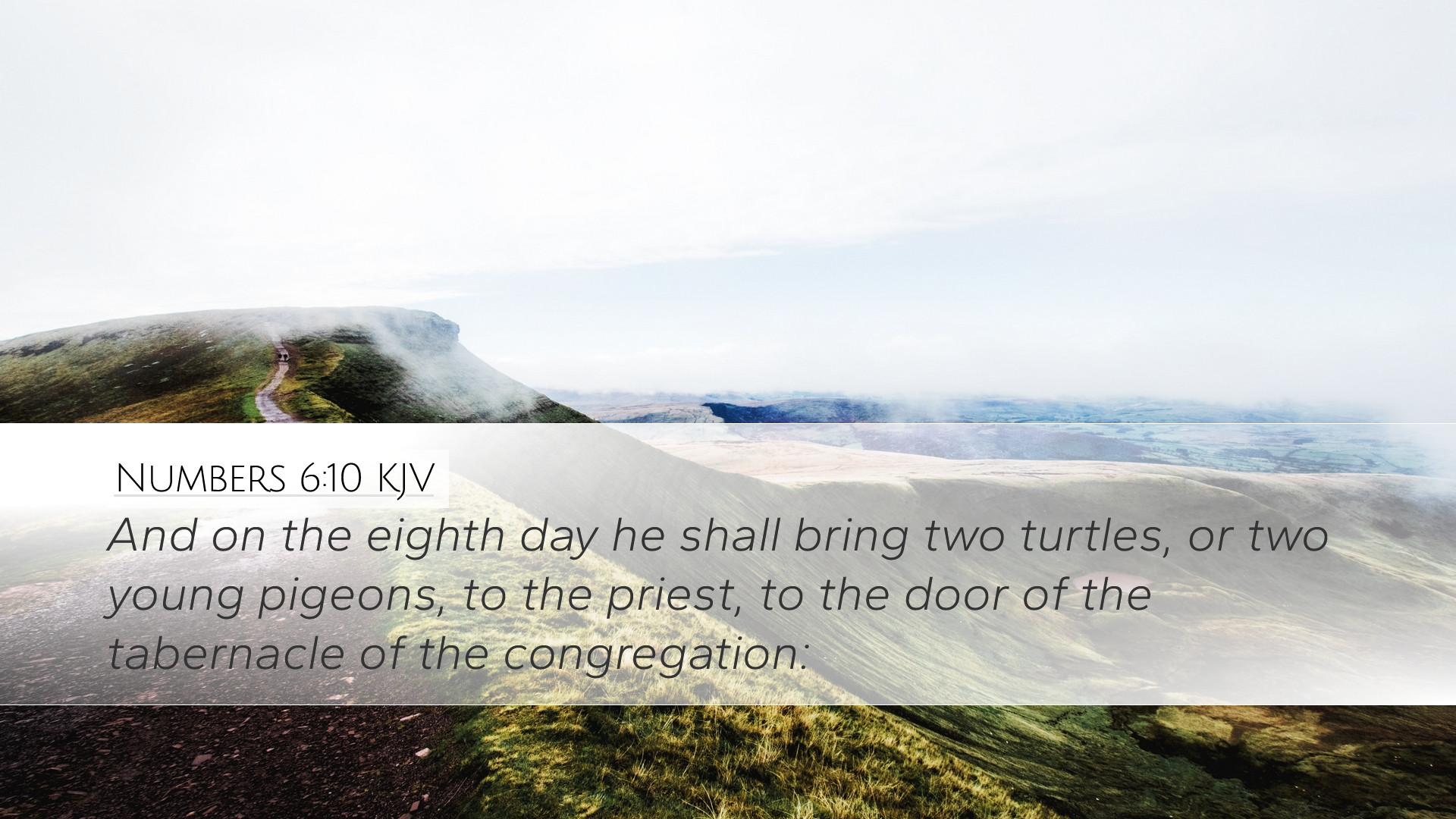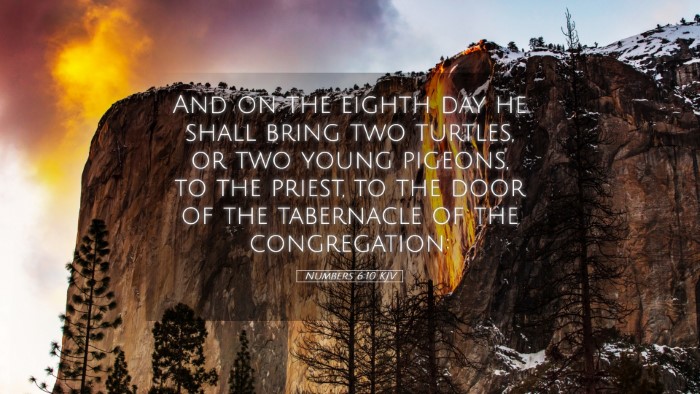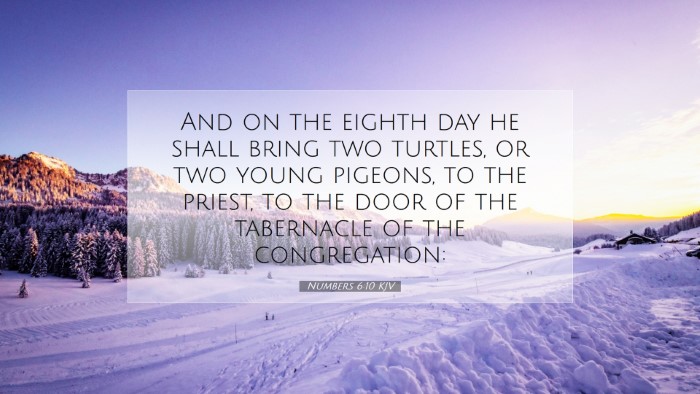Commentary on Numbers 6:10
Numbers 6:10 states: "And on the eighth day he shall take two male lambs without blemish, and one ewe lamb of the first year without blemish, and three-tenth deals of fine flour for a meat offering, mingled with oil, and one log of oil." This verse is positioned within the context of the Nazirite vow, highlighting the requirements for completing the vow.
Contextual Overview
The Nazirite vow, as outlined in Numbers 6, was a special commitment made by individuals to dedicate themselves to the Lord. The requirements included abstaining from wine and strong drink, avoiding the cutting of hair, and refraining from contact with corpses (Numbers 6:3-6). Numbers 6:10 specifically addresses the sacrificial requirements upon the completion of this vow.
Significance of the Eighth Day
The eighth day is significant for several reasons:
- Completion of the Vow: It marks the conclusion of the Nazirite's period of separation and dedication.
- Symbolism of New Beginnings: The number eight often symbolizes new beginnings in Biblical numerology, signifying the new phase in the individual’s spiritual journey.
Offerings Required
In this verse, the offerings listed are two male lambs, one ewe lamb, fine flour, and oil. Each component serves a specific purpose:
- Two Male Lambs: These lambs are significant for atonement and thanksgiving. The number two may imply witness, as two witnesses are often required for validation.
- One Ewe Lamb: The inclusion of a ewe lamb represents the need for completeness in the sacrifice, enhancing the concept of purity.
- Fine Flour: Symbolic of the dedication of one’s labor and efforts to God. It represents the fruits of labor being offered in gratitude and acknowledgment of God’s provisions.
- Oil: The oil often symbolizes the Holy Spirit's presence. Its mingling with the fine flour signifies the need for the spirit in every aspect of life and worship.
The Theological Implications of Sacrifice
Albert Barnes states that these offerings reflect the acknowledgment of God's grace and mercy which leads to salvation and spiritual completeness.
The act of making sacrifices is rooted deeply in acknowledging God’s provision and recognizing the need for atonement. The offerings required show a comprehensive approach to worship, where physical tokens accompany spiritual commitments.
Matthew Henry's Insights
Matthew Henry emphasizes the importance of the Nazirite vow in demonstrating a period of sanctification and separation, which points to the believer's call to holiness.
Henry also elaborates on the idea that the sacrificial system was not merely about the animals offered, but about the heart's condition in presenting these offerings before God.
Adam Clarke's Commentary
Adam Clarke provides a thorough analysis of the ritualistic elements involved in this passage, noting that these instructions were vital for the celebrants in expressing their fulfillment of the vow through observable acts of faith.
He asserts that offering these sacrifices shows both personal devotion and a public demonstration of faith, urging all believers to manifest their commitments visibly and tangibly.
Lessons for Today’s Believers
This verse instructs modern believers regarding:
- The Importance of Dedication: Just as Nazirites committed themselves to God, so too are Christians called to dedicate themselves wholly to the Lord.
- Understanding of Sacrifice: The practice of worship extends beyond mere acts; it embodies the devotion of one's entire life to God.
- Celebration of Spiritual Milestones: Just as Nazirites celebrated the completion of their vows, Christians today should mark significant spiritual milestones and achievements in their faith journey.
Conclusion
Numbers 6:10 not only instructs regarding the obligations of the Nazirite but serves as a rich template for understanding the profound nature of commitment, sacrifice, and worship in our relationship with God. Each element points us towards the ultimate sacrifice made by Christ and calls us to live lives that reflect our dedication to Him.


